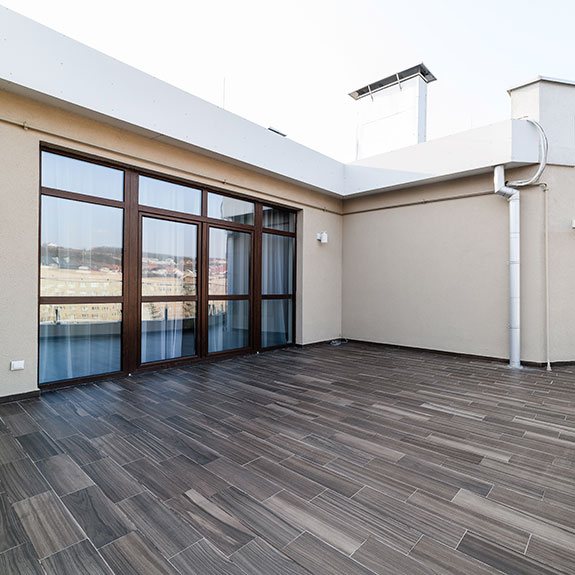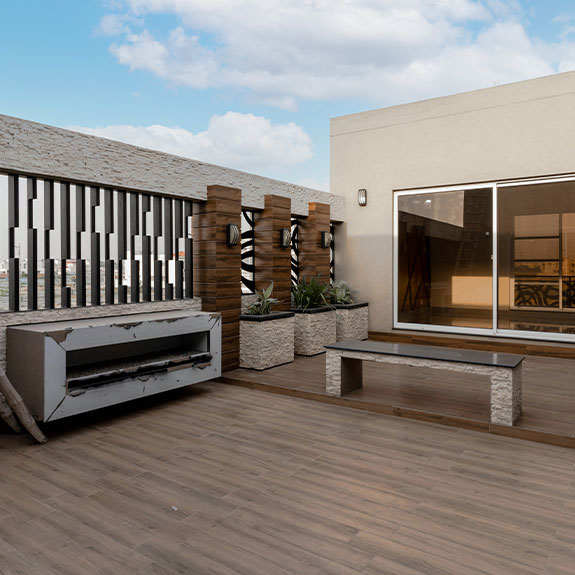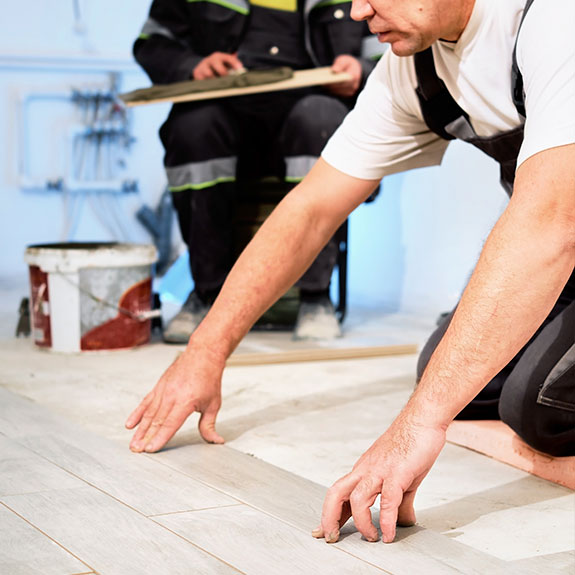The flooring of a terrace not only defines its style, but also influences its functionality and durability. A suitable pavement must be weather-resistant, safe to walk on and require little maintenance. At ParaTuReforma.com, specialists in construction materials, we know that the choice of flooring is key to ensure a comfortable and attractive outdoor space.
This guide will help you learn about the best terrace flooring options, their advantages and the keys to their installation and maintenance.
Key aspects for choosing a terrace floor
For a pavement to be suitable for outdoor use, it must meet certain fundamental characteristics. Moisture resistance, safety and durability are essential, especially in areas with abrupt climatic changes.
In addition, aesthetics play an important role. The floor should blend in well with the style of the house, whether it is rustic, modern or classic. It is also advisable to opt for materials that are easy to maintain and do not require constant treatment to preserve their appearance.

Types of decking for terraces and their characteristics
There are several options for paving a terrace, each with advantages and disadvantages depending on the use and climatic conditions.
Porcelain stoneware
Porcelain stoneware is one of the most recommended options due to its resistance and versatility. It is manufactured with high quality clays and is subjected to high temperatures, which gives it great durability. It is waterproof, withstands temperature changes without cracking and does not require constant maintenance.
Natural wood
Wood floors provide warmth and a cozy look, but require constant maintenance to resist moisture and sun exposure. Some tropical woods, such as teak or ipé, have greater durability, although they need to be treated with protective oils periodically.

Composite decking
Composite is an alternative to natural wood that combines wood fibers with synthetic resins. It has the appearance of wood, but without the drawbacks. It is resistant to humidity, does not warp in the sun and does not require varnishes or protective oils.
Natural stone
Granite, slate or travertine are some of the most commonly used stones for terrace floors. They are highly resistant and withstand extreme weather conditions without losing their properties.
Microcement
Microcement is a modern option that offers a continuous finish without joints. It is applied over the existing surface, allowing the terrace to be renovated without the need for major construction work.
Tips for terrace floor installation
The installation of an outdoor floor must be done on a stable and well-prepared base. It is essential that the ground is level and has a good drainage system to avoid water accumulation.

Maintenance and cleaning of terrace floors
Maintenance varies according to the type of material chosen. Porcelain and composite tiles require little attention, regular cleaning with water and neutral soap is sufficient.
In the case of natural wood, it is necessary to apply protective oils at least once a year to preserve its appearance and prevent it from deteriorating with humidity. Natural stone, depending on its type, may need a sealer to maintain its resistance to stains and wear.
The choice of flooring for a terrace depends on factors such as resistance, maintenance and desired aesthetics. Among all the available options, porcelain stoneware stands out as the most versatile and durable alternative, while composite is ideal for those looking for a maintenance-free solution.
At ParaTuReforma.com, we have a wide selection of the best quality terrace flooring. If you are looking for the perfect pavement for your outdoor space, visit our store and find the best option for your project.
What is the strongest outdoor flooring?
Porcelain tile is one of the most resistant options due to its low porosity and high durability. Natural stone is also an excellent option, although it requires a more complex installation.
Which floor needs less maintenance?
Composite and porcelain stoneware are the options that require the least maintenance. They do not need varnishes or special treatments and are easily cleaned with water and mild detergents.
Is anti-slip flooring necessary on the terrace?
If the terrace is exposed to rain or is near a swimming pool, it is advisable to opt for a floor with a non-slip finish to avoid accidents.


